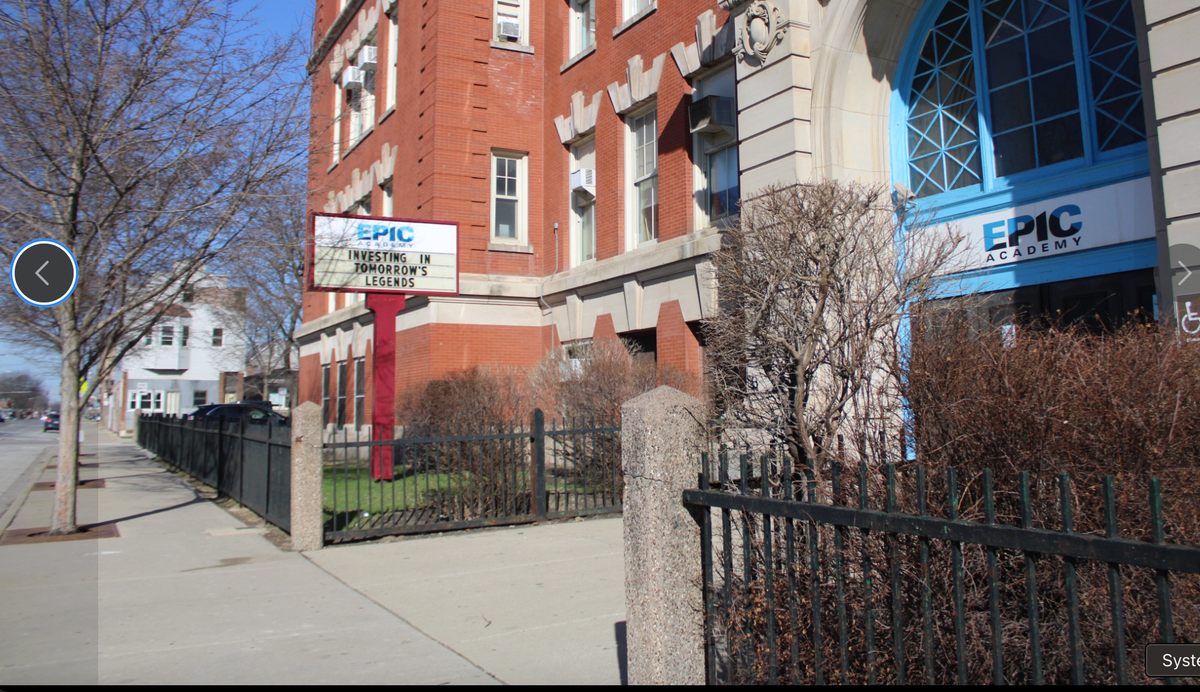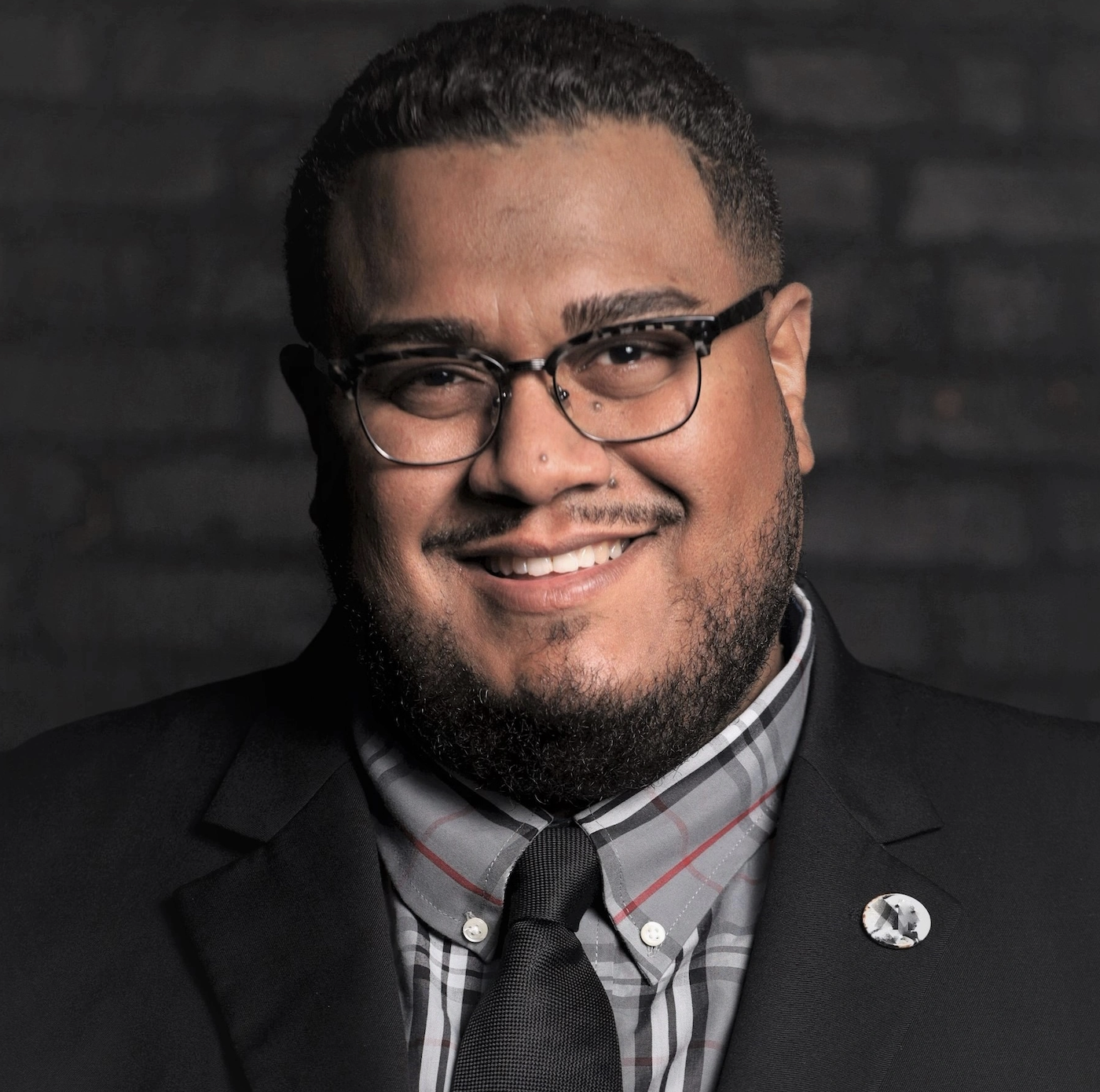An EPIC Battle over How To Close a School
EPIC Academy, a charter school in South Chicago, will close its doors at the end of the school year. The Chicago Board of Education is still grappling with how to create a better charter school closure process.

The Chicago Board of Education continues to grapple with handling charter school closures. Yesterday, the board approved an early termination of its charter renewal agreement with EPIC Academy, a high school in the South Chicago neighborhood. It also approved supporting EPIC with $1.4 million to ensure it can operate through the end of the year, preventing a midyear closure.
In August, EPIC's board notified Chicago Public Schools that it would close the school due to low enrollment and worsening finances, exacerbated by its 2023 decision to purchase and rehab the former St. Michael's elementary school building. EPIC put the building up for sale in July.
At last Thursday's special board meeting, the board unanimously approved an intergovernmental agreement to make the hotly contested MEABF pension payment contingent upon receiving sufficient TIF funds to cover both the $175 million payment and the $379 million in expected TIF revenue. But a last-minute proposal from member Jitu Brown to add guardrails to the closure agreement with EPIC sparked controversy.
Brown proposed adding language to ensure students, staff and families would collaborate with the CPS Office of Portfolio Management on a wind-down plan designed "to maximize stability and continuity of the school community, including but not limited to offers of enrollment to EPIC students at a high-performing, district-run school and corresponding offers of employment to qualified EPIC staff to follow the EPIC students to such a receiving school." After much debate and complaints that the proposal had been brought to the floor without advance notice, the board deferred the vote on the EPIC closure agreement until Tuesday's special meeting.
Yesterday, the debate centered around two points: whether to specify that EPIC students must be offered enrollment at "high-performing" receiving schools, and how to phrase language about offering employment opportunities to qualified staff without impinging on principals' authority to hire their faculty. Member Brown noted that UChicago Consortium on School Research studies have shown that students did not benefit academically from changing schools unless they moved to "significantly higher-performing schools."
But other board members raised concerns about the limitations of that language. Anusha Thotakura argued against stigmatizing schools by student performance. Che "Rhymefest" Smith argued that families should be able to send their children to the school of their choice, and that for some, safety might outweigh academics. In the end, the phrase "higher-performing" was dropped in favor of "district-run," and language was modified to clarify that EPIC employees eligible to work in CPS would have the opportunity to interview for jobs, but without a guarantee they would be hired.
Ultimately, a key question Brown raised remains unanswered: “How do we make sure a child doesn’t go from one school that’s closing its doors in the middle of the night, then they end up at a school that’s going to be in discussions for school closings the next year?”
InFocus: Ángel Vélez

Not many parents would move from the north side to West Englewood and switch their child from a private to a public school. But four years ago, board member Ángel Vélez and his family did just that. "We wanted to be closer to the Black community. We wanted to bring him to a neighborhood that represented more working-class people. We felt he was losing his culture, his language," said Vélez. Since the move, Vélez has seen a change in his son's consciousness. "He's been able to thrive more in his language [Spanish]. He's said that he's an Afro-Latino, because I am an Afro-Puerto Rican."
Vélez's own school journey also went through remarkable shifts. As a teen, he and his mother came to Chicago from Puerto Rico, settling in Humboldt Park. In 2001, Vélez walked through metal detectors at school for the first time as a Clemente High School student. He remembers a Black woman who taught business and technology, Ms. Hampton, who was "one of the few teachers I thought was really, truly there for me. As a Black Puerto Rican, I saw myself in her." Hampton saw his intelligence and encouraged him to stay out of trouble. Vélez says she and his brother were the two people who steered him away from the lure of the streets toward college. As a college student, Vélez was one of the few CPS graduates of the day to transfer from two-year to four-year college and beyond. After completing his studies at Wright College, he transferred to Northeastern Illinois University for his bachelor's and master's degrees, then to the University of Illinois at Urbana-Champaign for his doctorate in education policy, organization, and leadership.
Vélez was appointed to the board in late August, just in time for a high-stakes budget vote. "It has been a fast learning experience, because, you know, I was thrown on the fire when I was sworn in," he said. Some board members questioned his presence. Since then, he has begun to build relationships with his colleagues. "I have a really good relationship with most of the board, barring a few folks that haven't reached out yet." To get up to speed, he has had many conversations with the CPS staff who support the board. "I go to the chief of staff, policy people, and ask questions."
He says he accepted the appointment to act as an advocate for Black and Brown youth and to support neighborhood schools. "When you have strong neighborhood schools, everybody benefits," he noted. Vélez has two other main priorities for his work this year.
- Mental health. "There's a lot of trauma in our neighborhoods," Vélez observed, adding that he recently witnessed a shooting so close that his car took a bullet. "What does that mean for the kids?" In addition to finding ways to add more social workers and counselors, he supports social-emotional learning and trauma-informed schools. To keep costs down, he'd like to see CPS explore more partnerships with government and nonprofits to bring more mental health services into schools.
- Expanding sports. As the parent of a young athlete, Vélez has seen the benefits of sports for his son's discipline and positive connections with peers. He wants all kids to have more access to sports and wants to ensure girls have the opportunity to play in the sport of their choice. "My goal is to work with the sports administration of CPS to really understand where some equity gaps are and address those."
When asked about the recent issues with charter schools closing, he said, "I think parents need to be engaged early and often." He'd like to see a process where charter school communities wouldn't be surprised by a closure notice.
At this time, Vélez has not decided whether he will run for an elected seat. "I'm talking with my family to see if it's an option," he said. Like many of his colleagues, he feels the time pressure of managing his day job as a consultant, family responsibilities, neighborhood service, and the school board. "Nobody has 20 to 25 hours a week to spare and not get paid," he said. "That's a labor of love, and it's not sustainable."
Comments ()